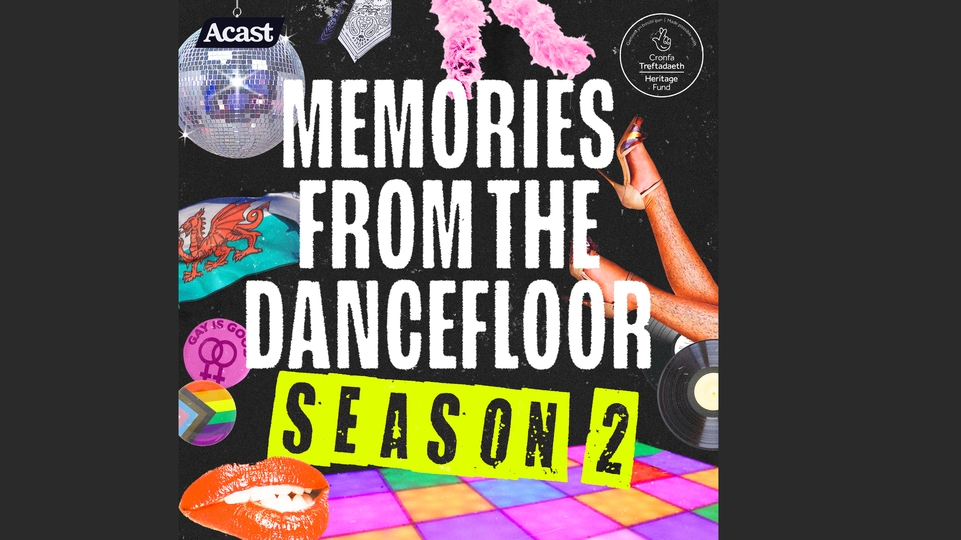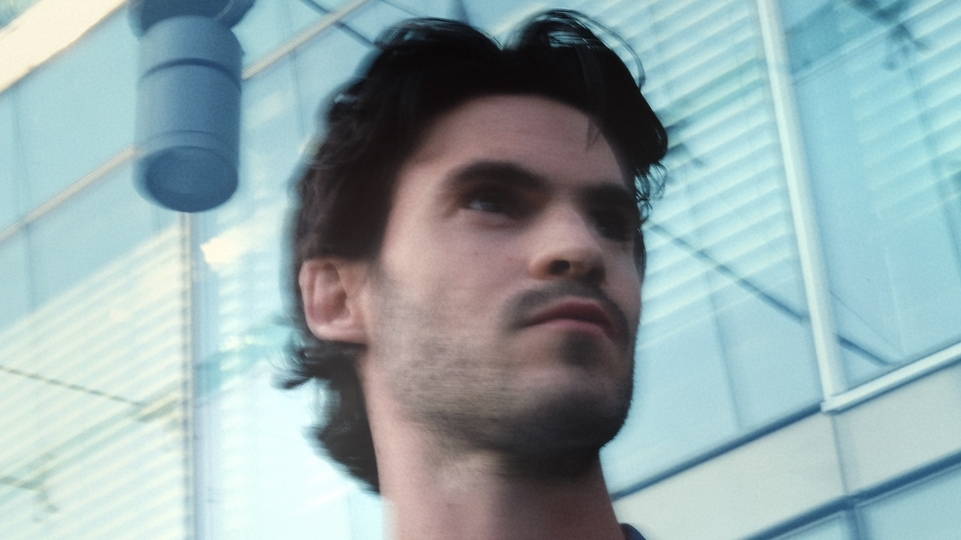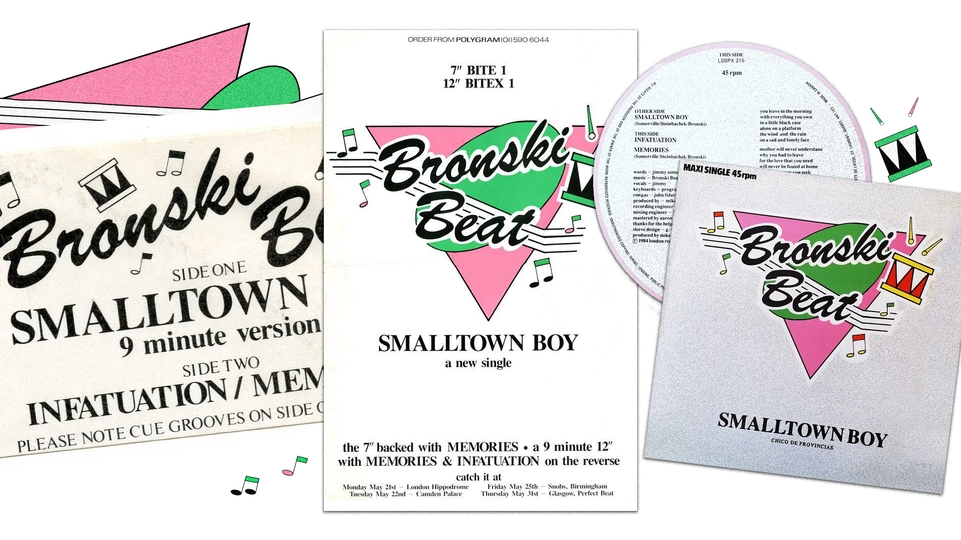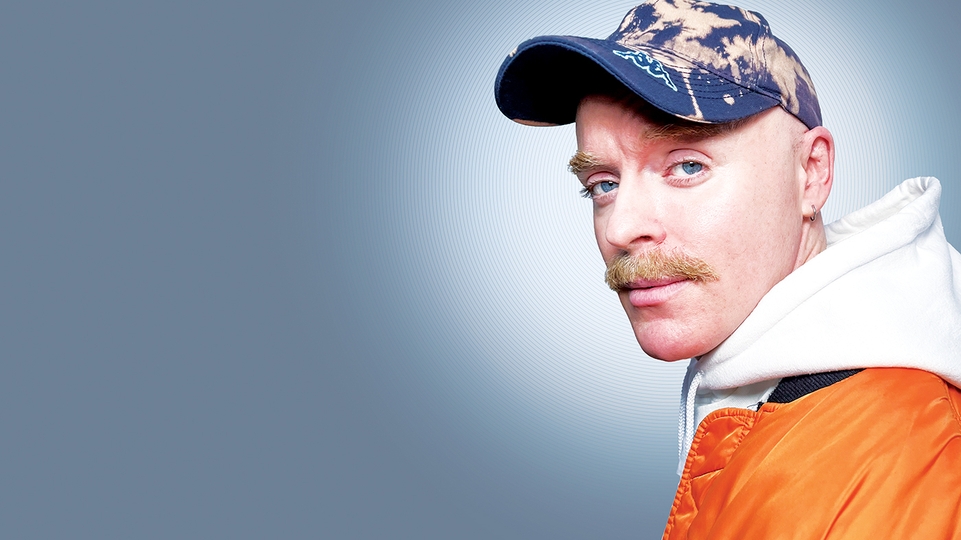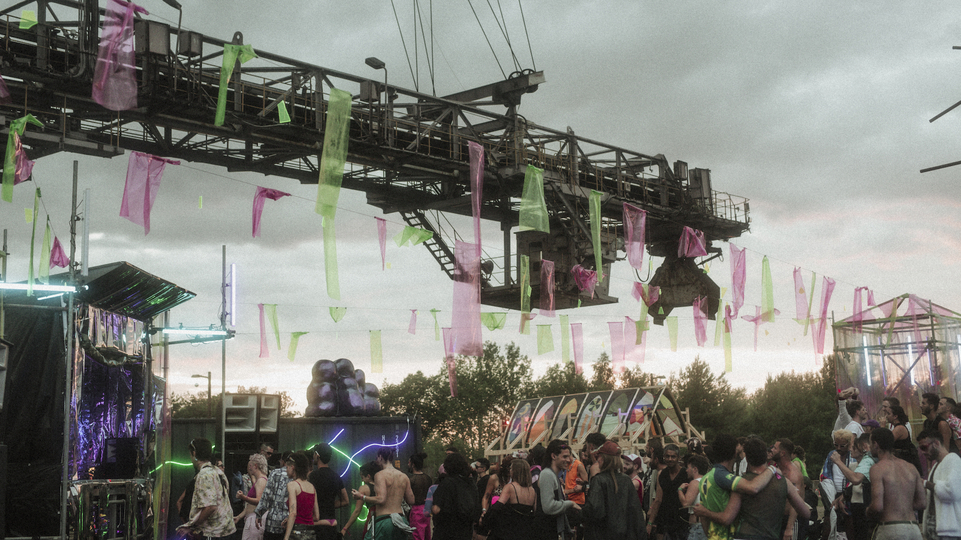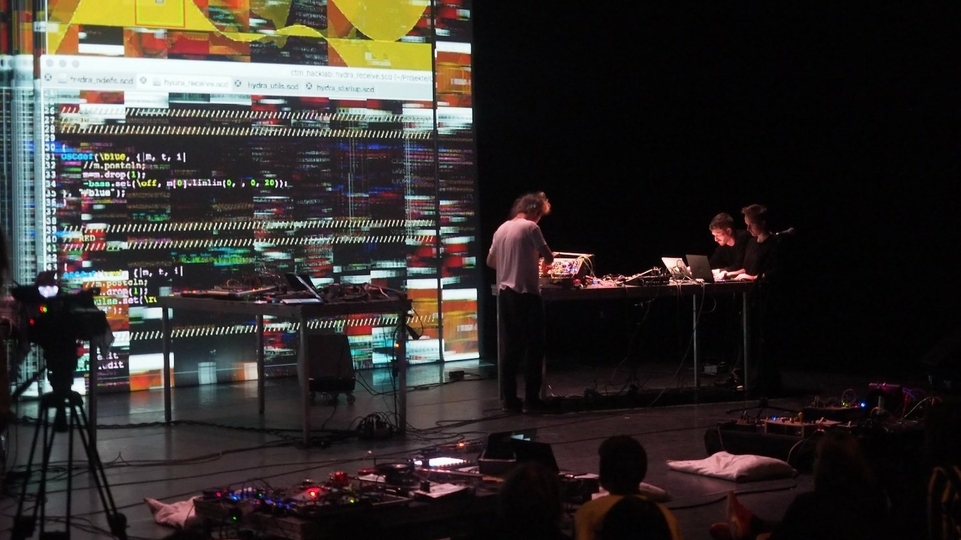
Whole Festival is a global queer celebration creating a world of its own
This year’s Whole Festival marked the biggest underground electronic music-focused queer festival on the planet, bringing together LGBTQ+ collectives, artists and ravers from around the globe. Marke Bieschke heads to Germany to find out how Whole has created a world of its own
In its fourth incarnation, delayed two years due to the pandemic, this year’s Whole: United Queer Festival is the hot ticket for LGBTQ+ folks from around the world. Those eager to commune beneath the behemoth machines of Ferropolis — the repurposed German industrial host site of Melt! and other huge festivals — dance with unfettered abandon for 72 hours, many wearing as little clothing as possible.
Besides the sheer thrill of it all, bringing a little sparkle and plenty of hot-pink wellies in case of rain to this tiny peninsula two hours south of Berlin, there is an amplified excitement around this year’s festival. Whole has almost doubled in size, scaling up from 3,000 attendees to just under 5,000, according to organisers. That makes it the largest queer festival in the world dedicated to underground electronic music, comparable only to its US counterpart, Honcho Campout, which takes place the weekend before in the Pennsylvania woods. (Brave party souls who attend both get a gold star and a tube of hydrating cream.)
Its five stages brimming with performers, Whole is now an event, exuding the swagger that large destination affairs featuring gender- and sexuality-diverse DJs and performers are sustainable. An essential element is the unique curation, which shifts focus away from attracting big names — although slowly increasing diversity in the techno establishment means top-tier acts are already on tap. Eris Drew and Octo Octa rave up the too-packed-to-move Forest Stage, Lakuti and Tama Sumo bring deep house vibes to the floating Beach Stage (decorated as a giant three-eyed neon Ba’al), and Berghain resident Boris steps in last minute for an ailing D. Tiffany, delivering a peak-time Sunday set on the vast and pulsating Crane Stage, beneath the dramatically lit, 30-metre-high defunct mining machinery.
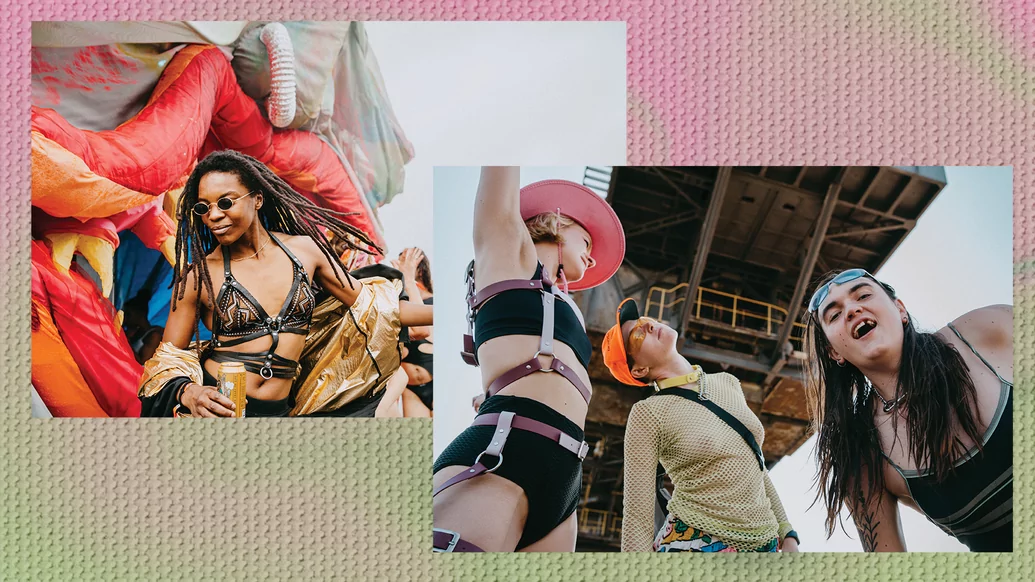
“In my mind, I envisioned this large pink cloud, with people dancing, partying, and zero threat of violence. From the moment I arrived, there was this caring and beautiful mood." - Nsasi, ANTI-MASS
This year, Whole Fest organisers put the spotlight on blossoming queer party and performance collectives from around the planet, including unexpected, under-represented and/or personally risky spots like Kazakhstan, Uganda, Hungary, Taiwan, Brazil, Ukraine, and Colombia. There are also Europe-based crews with roots in Ghana and Venezuela, alongside performers from Syria, Cameroon, South Africa, and beyond. It’s an astonishing global vision that pays off in actually manifesting what most festivals strive for: the creation of a world of its own.
Whole’s inclusion doesn’t stop with geography. Besides transgender, non-binary, and gender-non-conforming performers being given pride of place, neurodiversity is represented on the Performance Stage by Drag Syndrome, a troupe of drag queens and kings from the UK with Down’s Syndrome. Community workshops offer “genital renaming” and “get high on your hormones” instruction. A special FLINTA (female, lesbian, intersex, trans, and agender) space is set up by body-positive collective Les Sans-Culottes for “cosy, sexy, consensual, playful interaction”, featuring an appearance from the Berlin Strippers Collective. (Cis men and others have a dedicated “Cruising Area” cheekily decorated with cut-outs in the shape of winged cocks, as well as a random, somewhat-ominous blue pup tent with the words “SEX TENT” spray-painted on it.)
Yes, there are catty jokes that this is a “woke” festival, but it is exactly that, unabashedly, and it feels like a necessary success, a refuge from and offence against the creeping authoritarian intolerance threatening LGBTQ+ progress.
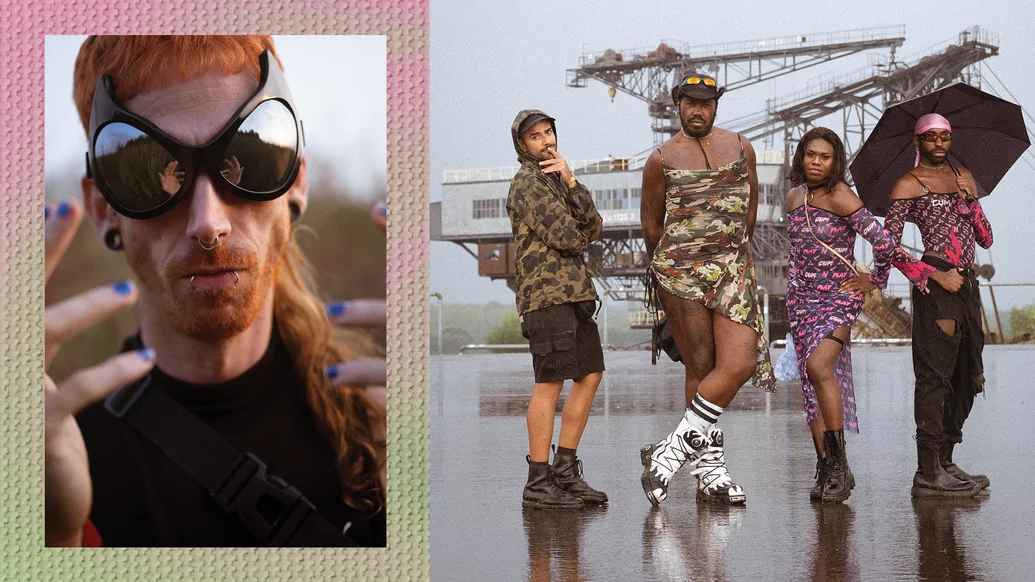
“I have never attended an entirely queer festival,” says DJ and experimental producer Nsasi of Ugandan collective ANTI-MASS. “In my mind, I envisioned this large pink cloud, with people dancing, partying, and zero threat of violence. From the moment I arrived, there was this caring and beautiful mood.” The queer scene in Ugandan capital Kampala has gone underground since police raided the gay-friendly RAM Bar in 2019 and arrested 127 people. ANTI-MASS, a group of longtime friends whose music jumps with mind-boggling ease among genres and time signatures, stepped in with nomadic parties at houses and other venues.
Authentically Plastic, the DJ-producer who founded ANTI-MASS, says “In Kampala, the challenge for us has been to create a queer community without being tied to one specific space. But queer people are now visible in other spaces, where straight people are being confronted with queer desire. That may be good for queer rights in the long run. Right now, though, the situation is very complicated. We’re trying to take care of each other while also creating something experimental, since we have good friends in [Kampala electronic collectives] Hakuna Kulala and Nyege Nyege. Coming together to bring our music to Whole is different from what we’re used to at home at the moment, although there is very much a party culture.”
“When I heard about Whole, I imagined a dystopian industrial place full of queers that I had to experience for myself,” adds Ugandan DJ and visual artist Darlkom, who filled in when ANTI-MASS member Turkana, a refugee from South Sudan, was unable to make the trip. “It’s such a different feeling to party without this low-level anxiety of assault, which is very prevalent in cis spaces. Just being able to wear whatever I want or not wear whatever I want, and walk around and hear songs that I have played before in my sets, I was like, ‘These people get it!’”
ZVUK, the collective from Almaty, Kazakhstan, is represented by founder Nazira and DJ E.T. “I started ZVUK because Almaty was missing dancefloor values, interesting music, and a space to be yourself. Our main value is that everyone at our parties is equal,” says Nazira. Since there aren’t official big clubs in Kazakhstan, ZVUK throws “off-location” parties and has had to build its scene from the ground up. “Little by little, over six years, people started to join the collective and follow us,” she continues. “You can really feel like you’re doing something important, although you are doing everything from scratch, from the soundsystem to the seating areas.”
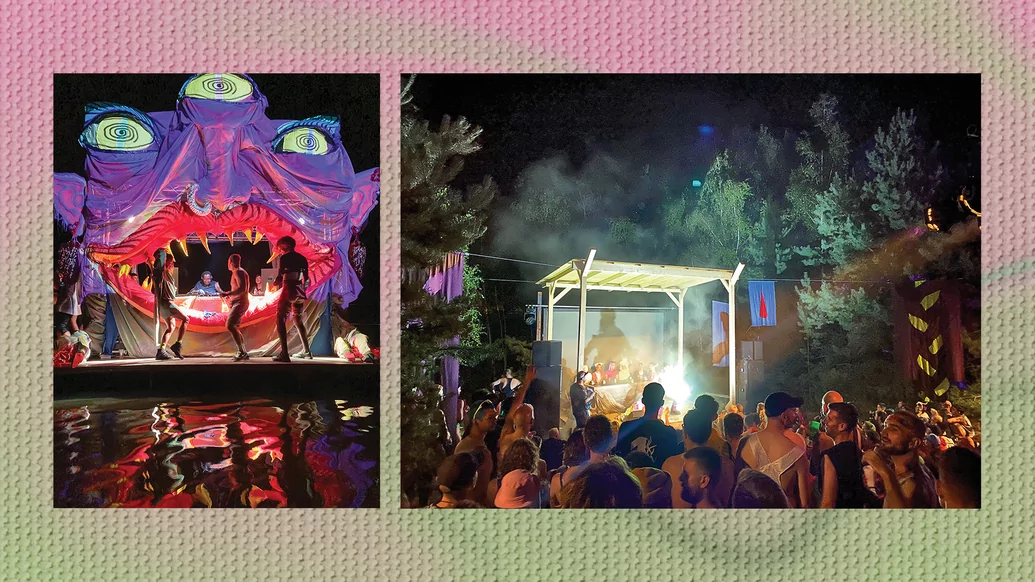
“I play anything that expresses queerness. That may mean disco, vogue beats, ‘90s Chinese pop, sometimes anything but techno.” - Yexiao
“Kazakhstan is very homophobic and conservative,” says E.T., whose name is a play on the Kazakh for “meaty beats”. “There aren’t laws against being LGBTQ, it’s just that society is very against it. But even in the past few years, it feels like there is a huge change, with ZVUK and other growing parties becoming a network of safe spaces. It’s becoming more open. There’s more visibility.” Nazira describes her DJ style as “banging but emotional”, and expertly delivers just that, after a dense, hyper-energetic set from E.T., which includes a glock-cocking rework of the Robert Miles chestnut ‘Children’. It’s obvious that someone’s set is a hit when somebody grabs you by the fannypack and exclaims “Kazakhstan is the future!”.
Most of the DJs, in fact, play hard and fast, infusing trance, drum & bass, electro and gabber vibes into the Berlin boom-boom-boom — as is the style of the time. One of Whole’s programming coups is putting decade-old Berlin goth-intelligentsia crew Gegen — an originator of the contemporary harder sound in queer spaces — on through the wee hours of Saturday morning at the Crane Stage, the pummelling beats from DJs Christian Marras, Esther Dune, and OCD ensuring no one gets much sleep. That wiggy stretch lands as a throwback to the hard ’90s, when endless energy and optimism fuelled the rave movement and seemed to erase all boundaries, and is especially liberating in this context.
And context is everything here. The Forest Stage dancefloor overflows to support Kyiv’s Veselka, with some dancers sporting camp twists on traditional Ukrainian dress. While DJs Vani Vachi and S.A Tweeman offer no overt connections to the current invasion, their throbbing sets fly off into melodic, even melancholic tangents that strike with special poignancy. Also on the Forest Stage, New York trans collective New World Dysorder plant their platform boots firmly in the ground as one of the hardest crews going, a fabulous hit of domination as transcendence. When the rain finally does come, Kiddy Smile matches its brief intensity with house bangers on the Beach Stage for those shivering under the tarps.
“I play anything that expresses queerness,” says DJ and visual artist Yexiao, one of the (impeccably fashionable) representatives of Taipei’s Spectrum Formosus Festival. “That may mean disco, vogue beats, ‘90s Chinese pop, sometimes anything but techno.”
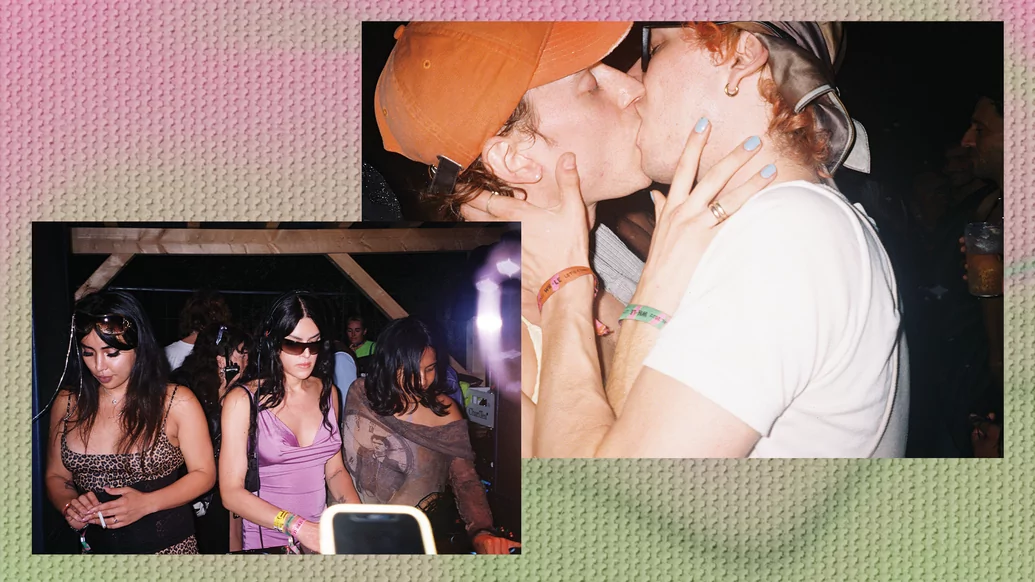
Taiwan is something of an oasis of LGBTQ+ tolerance — the only Asian country that recognises same-sex marriages — and Spectrum Formosus “aims to make Taiwan the lighthouse that shines for our Asian sisters and brothers”. For Yexaio, a resident at Taipei’s radical queer club Pawnshop, that means “mixing queer and straight crowds together, so when straight people see drag queens or same-sex people touching, they can see that it’s alright”.
Whole has plenty of on-the-nose gay musical moments, too. Bright house and ‘80s rarities from foundational Whole crews Cocktail d’Amore and Buttons from Berlin warm a sea of gyrating thongs and sun hats on the Beach Stage. Femme-forward Berlin art collective Lecken’s exuberant set on the Crane Stage ends up with pretty much everyone unclothed, from the DJs to the squadron of choreographed dancers shooting rainbowcoloured smoke flares into the air. Of course, there’s a Beyoncé moment when the Pornceptual collective drop ‘Flawless’ to thousands of squeals. And is that an old school remix of Cher’s ‘Believe’ drifting over the festival grounds?
By the time Ariel Zetina and Miss Twink USA, of Chicago’s Rumors collective, end their brilliant, house-infused B2B set — and the festival — with an Afro-Indigenous punta song from the Caribbean Garifuna people, the world feels cute and queer and free.

